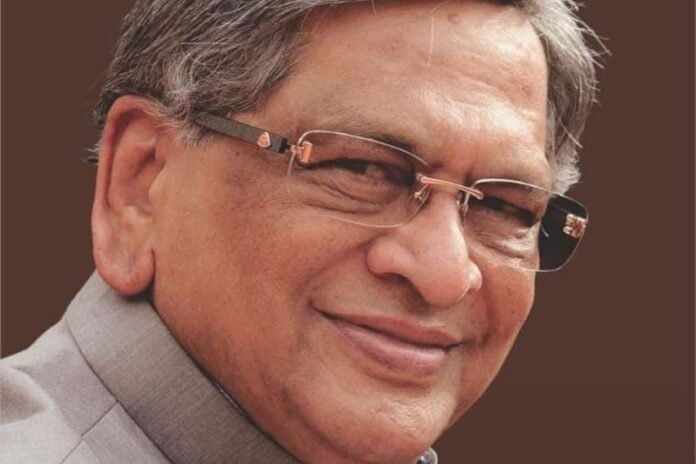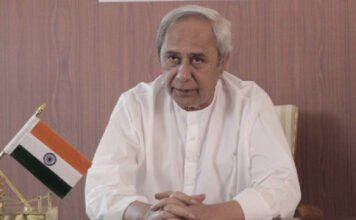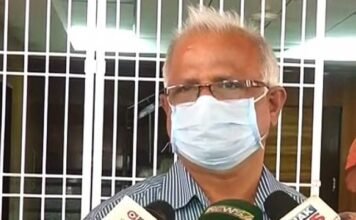New Delhi: SM Krishna, the former Karnataka chief minister credited with putting Bengaluru on the global map, passed away in the early hours of Tuesday. He was 92. Krishna passed away at around 2.30-2.45 am due to age-related issues. During his nearly six-decade-long political career, mostly with the Congress party, Krishna was an MLA and MLC as well as a member of both Lok Sabha and Rajya Sabha multiple times, even as he assumed a range of high public offices, including the posts of chief minister, governor and the external affairs minister.
Krishna joined the Bharatiya Janata Party (BJP) in 2017, and announced retirement from active politics in January last year. Prime Minister Narendra Modi expressed his condolences, and said Krishna was “a remarkable leader, admired by people from all walks of life”. “He always worked tirelessly to improve the lives of others. He is fondly remembered for his tenure as Karnataka’s Chief Minister, particularly for his focus on infrastructural development. Shri SM Krishna Ji was also a prolific reader and thinker,” PM Modi posted on X.
“I have had many opportunities to interact with Shri SM Krishna Ji over the years, and I will always cherish those interactions. I am deeply saddened by his passing. My condolences to his family and admirers. Om Shanti,” PM Modi said. Karnataka Chief Minister Siddaramaiah also expressed his condolences and said the state will “forever remain indebted to him”. “His unparalleled contributions as a Union Minister, Chief Minister, and leader have left an indelible mark. Karnataka will forever remain indebted to him, especially for his visionary leadership in transforming the IT-BT sector during his tenure as Chief Minister,” Siddaramaiah posted on X.
“A statesman and a leader without adversaries, Shri Krishna was a guide and mentor to me during my early days in the Congress party and remained a well-wisher throughout. His foresight, disciplined life, and kind nature are an inspiration for aspiring politicians. I extend my heartfelt condolences to his family and admirers in this moment of grief. May his soul rest in peace,” he added. Karnataka Deputy Chief Minister D K Shivakumar, who is also a relative of S M Krishna, said the final rites will be performed Wednesday in the Somanahalli village of the state’s Mandya district. A Padma Vibhushan awardee and a Fulbright scholar, Krishna hailed from the Maddur taluk in Mandya district, a part of the Old Mysuru region, and belonged to the Vokkaliga community.
Born on May 1, 1932, Krishna’s political journey began in the early 1960s when he won the Maddur Assembly seat as an Independent candidate and later on the Praja Socialist Party ticket. He also went on to become the MP from Mandya in 1968. He later joined the Congress. Though he was elected as an MP twice in a short period (1968-70 and 1971-72), he wanted to remain in state politics and so he returned to get elected as an MLC. In the Devaraj Urs cabinet during 1972-77, Krishna was inducted as the commerce, industries and parliamentary affairs minister.
As the Karnataka Pradesh Congress Committee (KPCC) president, Krishna led the party to victory in the 1999 Assembly polls following which he took over as the CM. He was one of the first state leaders who undertook a march during elections, and as the KPCC chief led the “Panchajanya Yatra” ahead of the 1999 polls that proved successful. While Bengaluru got recognition as India’s “Silicon City” during during Krishna’s tenure as the chief minister (1999-2004), it was also mired in several controversies including the Abdul Karim Telgi scam, land scam, mismanagement of Kannada film actor Rajkumar’s abduction by forest brigand Veerappan, and the Cauvery water row with Tamil Nadu. His opponents always attacked him for “neglecting” rural Karnataka, calling him the “chief minister of Bengaluru”. Bengaluru’s first flyover was inaugurated when he was the Karnataka chief minister and special facilities were provided to the IT and BT sectors to encourage them to establish their companies in the city.
Following the 2004 Assembly elections, which threw up a hung verdict leading to the formation of a Congress-JD(S) coalition government, Krishna, then aged 72 years, was appointed by the then Congress-led UPA government as the Maharashtra Governor. Keen to return to active politics, Krishna was later elected to the Rajya Sabha and was inducted as the external affairs minister in the UPA 2.0 government in 2009.
Gradually as Krishna’s slide in state politics began, he also lost his influence in the Mandya region. His standing in the Congress and his relationship with the Gandhi family also deteriorated as the grand old party started regarding him as a “spent force”. In 2012, Krishna stepped down as the Union minister. He campaigned for the Congress in the 2014 Lok Sabha polls, but the party was routed.
After lying low for nearly three years, Krishna switched to the BJP in March 2017, accusing the Congress of having “badly bruised” his “self-respect and honour”. “Age is only a number, and it should not be a factor in deciding the future,” he said, charging that the Congress did not want leaders but only managers to run its affairs. However, his advancing age took its toll on his political career after joining the BJP. The death of his son-in-law V G Siddhartha, the Cafe Coffee Day founder, by suicide in 2019 also dealt a severe blow to him.


























